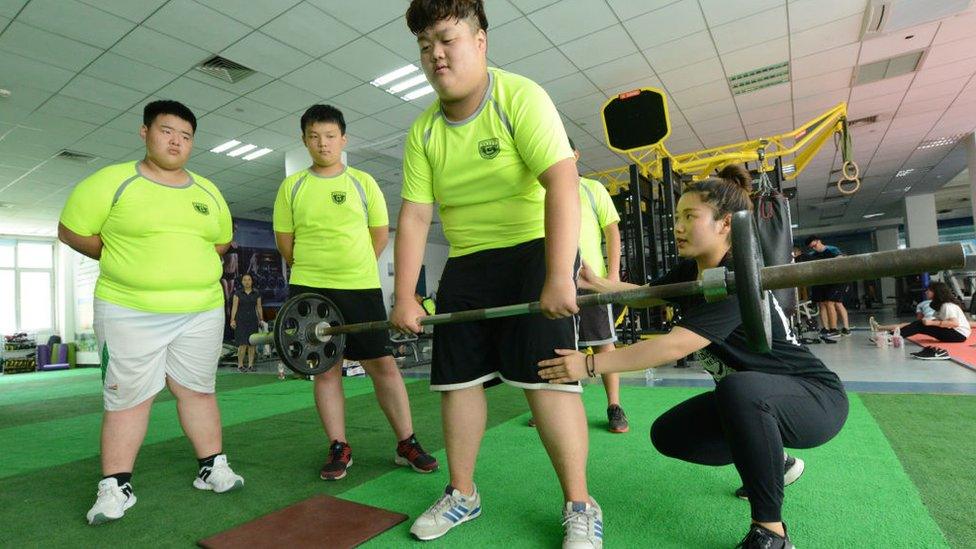Chinese uni trades canteen discount for workout
- Published

'But tasty food and exercise can co-exist', says canteen manager Zhang Linqin
Zhejiang Gongshang University has launched the project "trade walk for money" with the idea that the more steps students clock, the bigger discount they get, reports People's Daily, external.
By reaching 10,000 steps on a given day, students can enjoy 15% off their meals, while racking up 40,000 steps could earn them a whopping 45% discount on that day.
The Chinese messaging app Wechat has the function of monitoring and recording users' physical movements.
All students need to do to claim their prize is show the activity record on their phones to canteen staff.
The news report has been liked by tens of thousands of people on Weibo - China's equivalent of Twitter.
'Knees on fire'
One Weibo user, who claims to be a dietician at a Chinese university, called the scheme "a good one" and said, external: "this is an economic method for a balanced diet and exercise."
But not everyone's cheering the idea. The most popular comment questions whether the steps are realistic.
"40,000 steps, the knees must be on fire," the user said, external. Another wrote he suffered from muscle strain after walking 40,000 steps.

China has the largest number of obese children in the world
In response to the concerns, the university said that walking is just one of the activities accepted under the scheme.
"When boys play basketball, the smart phones collect the data and count it towards walking steps," a manager at the university's canteen told The Paper, external.
Zhang Linqin explained how the idea came about: "During the Chinese New Year holiday last month, students enjoyed too much good food at home. But tasty food and exercise can co-exist".
You may also be interested in:
This isn't the first time a Chinese university has tried to improve students' fitness levels.
Last year, Guangdong University for Foreign Studies introduced a new athletic ability assessment in its PE exam - involving walking 10,000 steps a day.
But that initiative ended up with students cheating on the numbers, because "10,000 steps a day is too hard", as the official Xinhua news agency found.
China has a serious obesity problem, and there are warnings about fast-growing obesity rates among young people.
More than a quarter of Chinese children are expected to be obese or overweight by 2030 according to one study, external.
But the government's public health policies have been criticised, external elsewhere, as they've mainly focused on exercise, while diet and the need to reduce calorie intake and the consumption of fast food is rarely mentioned.
Reporting by Wanyuan Song and Krassi Twigg
Next story: Indian online detergent boycott misfires
Use #NewsfromElsewhere to stay up-to-date with our reports via Twitter, external.